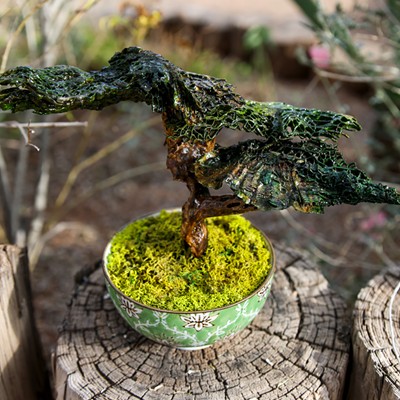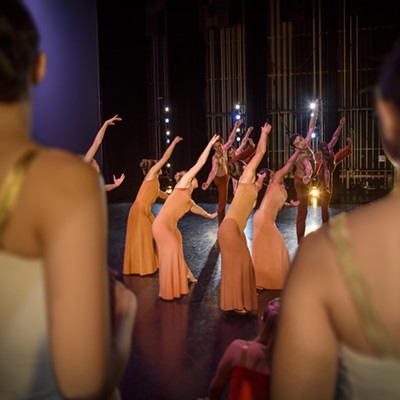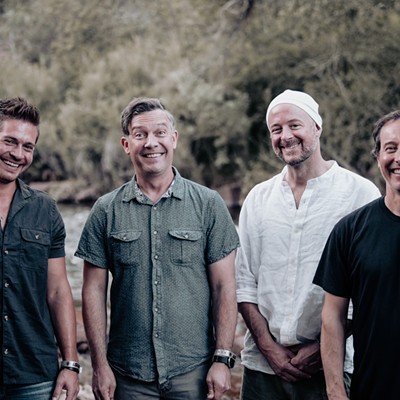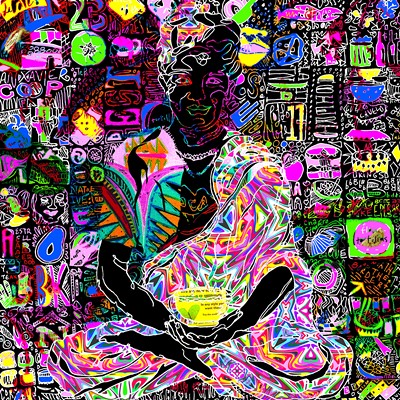Written in French by an Irishman, "Waiting for Godot" continues to chase its theatrical tail more than 60 years after it was first performed. The piece is right up The Rogue Theatre's alley—they've never shied away from the challenges of a complicated piece—and they have mounted a very good production of Samuel Beckett's ode to ambiguity.
The play is about: waiting, friendship, insignificance, uncertainty, repetition, hope, hopelessness, time, timelessness and emptiness. At least. Or perhaps it is about none of these things. It is a simple story in which nothing much happens. About this cornerstone of the Theater of the Absurd movement, Beckett has refused to give any real explanation of his characters, their actions and, most assuredly, the mysterious Godot. He has insisted that all he knows, he has shown, and although it's not much, it was enough for him.
Right.
Actually, we know that a writer is not always aware that his or her characters, plots, dialogue and such can be interpreted variously or that someone might see, quite reasonably, something that was hidden from the writer. It's one of the things that makes the arts so wonderful. And it makes a play such as "Waiting for Godot" provocative, intriguing, and resonant to some and bewildering and annoying to others. It's sort of a Rorschach kind of thing.
So here is what we see. Two tramp-like characters, Vladimir (Joseph McGrath) and Estragon (Matt Bowdren) spend each day waiting for someone named Godot. They wait outside under a barren tree and converse about—well, all kinds of stuff. A couple of strange folks, Pozzo (David Morden) and his servant Lucky (David Greenwood) come by and the four have a rather bizarre interaction. After they leave, our tramps continue to wait until word arrives that Godot would not be coming today.
The second act finds the two the next day still waiting for Godot. Didi (Vladimir's nickname) seems much more resolute than Gogo (Estragon's.) The waiting is excruciating. They cannot go on like this. Yet they do. Pozzo and Lucky show up again, having changed in dramatic ways. Again, the interactions of the four are strange. After they leave, Didi and Gogo continue waiting, talking about all kinds of things, including committing suicide, until word arrives again that Godot will not be coming after all. They determine they will reconvene the next day.
Whoa! Did you see that coming?
Actually, Beckett gives us a very simple, almost skeletal, story of a play and the actors, guided by director Cynthia Meier and associate director Patty Gallagher, give it flesh and blood. For some the results resonate, suggest and intrigue, and for others it bewilders beyond their tolerance. But the ultimate success of this production lies in the diligence and craft of the actors and directors. However odd Beckett's story may seem, whatever the meaning—and the audience is left to fill in many blanks—it makes perfect sense to the actors. So the production conveys a strong sense of story, of import, to us, however odd or fractured or mysterious it may be.
There are a couple of things that don't quite work. In numerous productions the tramps are portrayed as clowns, in the broadest definition of the term, like, say, Laurel and Hardy, and includes physical comedy, which is an art itself. Here there seems to be a hint of this quality, but it's not cleanly executed. In addition—and actually this is part of the clown/broad comedy motif—musical director and pianist Jake Sorgen underscores the action from time to time with a scamper on the keys. But the reason for the scamper at any given moment is not quite clear and seems inconsistent. Perhaps these aspects can be developed as the run of the show progresses, because the ideas are sound, even if the execution is not quite as smooth as desirable.
Otherwise, the troupe does an excellent job of giving us a very entertaining and thoughtful reading of Beckett's piece. You should see it.
(By the way, all of the characters wear bowlers, as specified by Beckett. Now what does that mean?)








